第22章 Letter XVI(2)
Energetic beauty can no more preserve a man from a certain residue of savage violence and harshness than graceful beauty can secure him against a certain degree of effeminacy and weakness.As it is the effect of the energetic beauty to elevate the mind in a physical and moral point of view and to augment its momentum,it only too often happens that the resistance of the temperament and of the character diminishes the aptitude to receive impressions,that the delicate part of humanity suffers an oppression which ought only to affect its grosser part,and that this course nature participates in an increase of force that ought only to turn to the account of free personality.It is for this reason that at the periods when we find much strength and abundant sap in humanity,true greatness of thought is seen associated with what is gigantic and extravagant,and the sublimest feeling is found coupled with the most horrible excess of passion.It is also the reason why,in the periods distinguished for regularity and form,nature is as often oppressed as it is governed,as often outraged as it is surpassed.
And as the action of gentle and graceful beauty is to relax the mind in the moral sphere as well as the physical,it happens quite as easily that the energy of feelings is extinguished with the violence of desires,and that character shares in the loss of strength which ought only to affect the passions.This is the reason why,in ages assumed to be refined,it is not a rare thing to see gentleness degenerate into effeminacy,politeness into platitude,correctness into empty sterility,liberal ways into arbitrary caprice,ease into frivolity,calm into apathy,and,lastly,a most miserable caricature treads on the heels of the noblest,the most beautiful type of humanity.Gentle and graceful beauty is therefore a want to the man who suffers the constraint of matter and of forms,for he is moved by grandeur and strength long before he becomes sensible to harmony and grace.Energetic beauty is a necessity to the man who is under the indulgent sway of taste,for in his state of refinement he is only too much disposed to make light of the strength that he retained in his state of rude savagism.
I think I have now answered and also cleared up the contradiction commonly met in the judgments of men respecting the influence of the beautiful,and the appreciation of aesthetic culture.This contradiction is explained directly we remember that there are two sorts of experimental beauty,and that on both hands an affirmation is extended to the entire race,when it can only be proved of one of the species.This contradiction disappears the moment we distinguish a twofold want in humanity to which two kinds of beauty correspond.It is therefore probable that both sides would make good their claims if they come to an understanding respecting the kind of beauty and the form of humanity that they have in view.
Consequently in the sequel of my researches I shall adopt the course that nature herself follows with man considered from the point of view of aesthetics,and setting out from the two kinds of beauty,I shall rise to the idea of the genus.I shall examine the effects produced on man by the gentle and graceful beauty when its springs of action are in full play,and also those produced by energetic beauty when they are relaxed.I shall do this to confound these two sorts of beauty in the unity of the beau-ideal,in the same way that the two opposite forms and modes of being of humanity are absorbed in the unity of the ideal man.